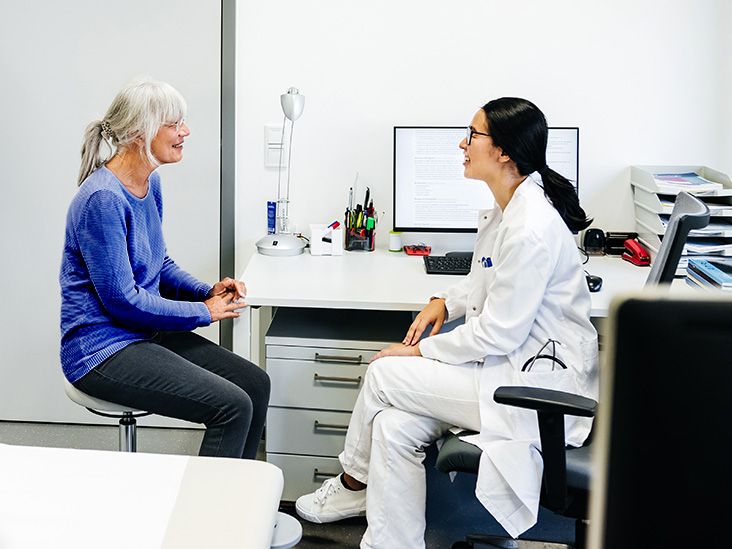The Impact of Crossword Puzzles on Parkinson's Disease
Parkinson's disease is a progressive neurodegenerative disorder that affects movement and motor skills. As Parkinson's disease advances, patients may experience tremors, rigidity, slowness of movement, and problems with balance and coordination. These motor symptoms can significantly impact a person's quality of life. While there is no cure for Parkinson's disease, treatments aim to manage symptoms and slow the progression of the disease. In addition to medications and therapies, research shows that lifestyle factors like cognitive stimulation can have a big influence on brain health for Parkinson's patients.
Doing regular crossword puzzles could be an enjoyable and effective way to get that brain stimulation. A recent study published in the International Journal of Geriatric Psychiatry looked at the impact of puzzles like crosswords on cognitive decline in older adults. The results suggest that puzzles like crosswords may help to slow memory loss and support brain health as we age. Keep reading to learn more about the study findings and how crossword puzzles could benefit those with Parkinson's disease.
The Study on Crosswords and Cognitive Decline
The study from the University of Exeter and King's College London followed more than 17,000 healthy people ages 50 and older over a 10 year period. The participants took yearly tests of memory and thinking skills. They also reported how frequently they engaged in word puzzles like crosswords. The research team then analyzed how puzzle activity related to cognitive scores over time.
The results showed that participants who regularly did word puzzles had better brain test scores overall compared to non-puzzle users. And higher puzzle use was associated with slower decline in memory skills. On average, the most frequent puzzle doers showed brain function equivalent to ten years younger compared to those who did not do puzzles. Based on these findings, word puzzles like crosswords seem to have real benefits for protecting the aging brain.
Why Are Crossword Puzzles Good for the Brain?
Researchers believe puzzles like crosswords may work to boost brain health in a few key ways:
- Crosswords exercise complex thinking - They engage several mental skills at once including logic, reasoning, language, and visual-spatial processing. This broad stimulation may increase cognitive reserve.
- Crosswords build neural connections - Repeatedly retrieving words and facts helps strengthen connections between brain cells. More connections means better cognitive performance.
- Crosswords may reduce mental decline - The brain exercise could counteract declines in thinking skills. Puzzles may also help diminish inflammation that can lead to dementia.
Along with these general benefits for the aging brain, crossword puzzles have specific advantages for people with Parkinson's disease.
Benefits of Crosswords for Parkinson's Disease
For patients with Parkinson's disease, loss of neurons in parts of the brain leads to reduced dopamine levels. This dopamine deficiency causes movement symptoms. But Parkinson's can also involve cognitive impairment, from mild issues to severe dementia in late stages. Research shows puzzles like crosswords may help in several ways:
- Strengthen connections between remaining neurons - Compensate somewhat for lost neurons and dopamine.
- Improve cognitive speed and flexibility - Counteract Parkinson's-related declines in thinking.
- Boost dopamine levels - Mental stimulation releases dopamine, improving symptoms.
- Enhance quality of life - Provide enjoyment, build confidence, reduce stress.
A past study looking specifically at Parkinson's patients found that those who did crossword puzzles had better scores on cognition and memory tests. Patients also reported that puzzles improved their moods. Based on evidence so far, crosswords seem to benefit both cognitive skills and quality of life for those with Parkinson's disease.
Tips for Using Crosswords in Parkinson's Treatment
Here are some tips for making crosswords part of a Parkinson's treatment plan:
- Aim for a daily crossword routine - Consistency is key for brain benefits.
- Vary difficulty level - Start easier and work up to harder puzzles to keep engaged.
- Use a pencil - Prevents motor symptoms from affecting penmanship.
- Enlarge puzzle view - Reduces eye strain and frustration.
- Join a club - Adds social benefits along with mental stimulation.
- Time yourself - Adds mental challenge and tracks progress.
- Focus on enjoyment - Don't become anxious about completion.
Along with crosswords, try other word and number puzzles like sudoku, word searches, scrabble, and trivia games. Varying activities keeps things interesting while providing comprehensive cognitive engagement.
Should Crosswords Replace Parkinson's Medications?
While crossword puzzles have demonstrated cognitive benefits, they should not replace standard Parkinson's treatments. Prescription medications and therapies remain essential for managing symptoms and slowing progression of the disease. Puzzles like crosswords are best viewed as a supplement to enhance overall treatment.
Some ways crosswords can complement Parkinson's medications and therapies include:
- Providing mental stimulation between therapy sessions
- Improving cognitive skills weakened by disease progression
- Elevating mood and reducing stress for better quality of life
- Adding enjoyment and satisfaction to the treatment process
Discuss options like crosswords with your neurologist to identify the best puzzle activities to incorporate in your treatment regimen.
The Takeaway on Crosswords for Parkinson's
Progressive neurological conditions like Parkinson's disease can certainly be disheartening. But research gives hope that engaging in intellectually stimulating activities can have real impacts on improving brain health and quality of life.
While more research is still needed, the evidence so far indicates doing crossword puzzles and similar word games may benefit Parkinson's patients by improving cognitive skills, elevating mood, and potentially slowing symptom progression. Crosswords present an easy and enjoyable way to work the brain every day.
Along with continuing standard treatments, making crosswords part of a weekly routine can offer Parkinson's patients mental engagement, accomplishment, and purpose. So pick up a pencil and put your brain to work on the crossword - it just might make you feel better while helping to strengthen your mind against disease.
FAQs
How might crosswords benefit those with Parkinson's disease?
Research indicates crosswords may help strengthen connections between neurons in the brain, counteracting the loss of dopamine-producing cells in Parkinson's. Crosswords also provide cognitive stimulation that can enhance mental skills like memory and flexibility that decline with Parkinson's progression.
Are crossword puzzles better for the brain than video games?
The study found that participants who regularly did word-based puzzles like crosswords had better scores and slower cognitive decline than those who played video games. Researchers believe the broader linguistic and cognitive skills used for puzzles better supports overall brain health.
How often should someone do crossword puzzles for Parkinson's treatment?
Experts recommend establishing a consistent daily crossword routine for the best brain health benefits. Aim to work a 15-30 minute puzzle each day. Consistency over time provides greater cognitive gains.
Should Parkinson's patients stop their medications if doing crosswords?
No, crossword puzzles should not replace doctor-prescribed Parkinson's medications and therapies. Puzzles provide supplementary mental stimulation but do not treat the disease itself. Patients should view crosswords as an additional therapy to enhance standard treatment.
What tips help make crosswords most beneficial?
Using a pencil, enlarging puzzles, timing yourself, and varying difficulty levels all make crosswords more engaging. Joining a club adds social benefits too. The key is to establish a regular, enjoyable routine versus becoming anxious about completion.
Disclaimer: This article is for informational purposes only and does not constitute medical advice. Always consult with a healthcare professional before starting any new treatment regimen.
Related Coverage
Find the best Medicare in New Mexico options for 2025. Compare plans, enroll with confidence, and get the coverage you need....
Get clarity on how Medicare handles preexisting conditions and waiting periods. Know your coverage options and make informed decisions....
Medicare fall prevention services help seniors reduce risks and maintain independence. Learn how Medicare covers wellness visits, therapy, and safety equipment....
Medicare covers end-of-life planning services. Learn how to prepare for future healthcare decisions and ensure your wishes are respected....
Find out how the Medicare Part B Give Back can lower your monthly premium, who qualifies, and what to watch for before enrolling....
Learn how Medicare nonparticipating providers work, including billing practices and out-of-pocket costs. Get informed today....
Foods and drinks that can support brain health and reduce the risk of dementia. Learn which nutrients are key to maintaining cognitive function....
Know your Medicare guaranteed rights to secure coverage without discrimination. Get the protection you deserve when it matters most....
Boost your energy as you age with smart nutrition choices. Find out how diet impacts fatigue and what foods help maintain stamina....
Boost veggie consumption by adding produce to meals and snacks, trying new cooking methods, discovering new veggies, making simple swaps, and leveraging seasonal produce....









